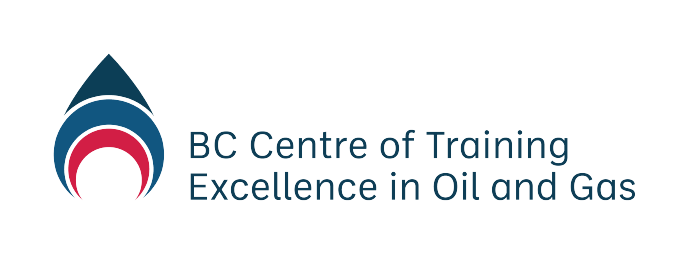-
Module 2.0 How to be Successful in this Course
-
Module 2.1 Introduction to Natural Gas
-
Module 2.2 The Natural Gas Industry in British Columbia
- Overview
- Learning Outcomes
- Natural Gas Science – The Simple Version
- Natural Gas Science – Chemistry
- Natural Gas Science – Physics
- Natural Gas Science – Units of Measurement
- Natural Gas Science – Geology
- Natural Gas Resources and Uses
- Oversight of the Natural Gas Industry
- Understanding Land Rights and Natural Gas
- Energy and the Future
-
Module 2.3 Upstream – Well Site Selection, Preparation and Drilling, Completion, Production, Water Recycling, and Reclamation
- Learning Outcomes
- The Upstream Sector – Extraction and Processing
- The Upstream Sector – Exploration and Site Selection
- The Upstream Sector – Preparation and Drilling
- The Upstream Sector – Completion
- The Upstream Sector – Production
- The Upstream Sector – Water Recycling
- The Upstream Sector – Reclamation
- Upstream Companies and Jobs in British Columbia – Companies
- Upstream Companies and Jobs in British Columbia – Industry Associations
- Upstream Companies and Jobs in British Columbia – Professional Associations
- New Vocabulary
-
Module 2.4 Midstream – Transportation, Processing, Refining
- Learning Outcomes
- The Midstream Sector
- The Midstream Sector – Processing Natural Gas
- The Midstream Sector – Liquefied Natural Gas
- The Midstream Sector – An Emerging Industry
- The Midstream Sector – Processing LNG
- The Midstream Sector – Proposed LNG Projects in British Columbia
- Transportation
- Midstream Companies and Jobs in British Columbia
-
Module 2.5 Downstream – Refining and Markets
-
Module 2.6 Health and Wellness in the Natural Gas Industry
-
Module 2.7 Safety
-
Module 2.8 Terminology and Communication
-
Module 2.9 Jobs and Careers
- Learning Outcomes
- Industry Outlook
- Technology is Changing Workforce and Skills
- Employment in the Natural Gas Industry
- Employment in the Natural Gas Industry – Types of Employment
- Employment in the Natural Gas Industry – Range of Jobs
- Employment in the Natural Gas Industry – High Demand Jobs and Occupations
- Occupational Education and Training
-
Module 3.0 How to be a Valued Employee
-
Module 3.1 Identifying Interests and Skills
-
Module 3.2 Looking for Employment in Natural Gas
-
Module 3.3 Applying for Employment in Natural Gas

Energy industries worldwide are vibrant, growing, and changing to include lower carbon emission energy sources, including industries in British Columbia that are part of that trend. British Columbia is home to large reserves of natural gas and is one of the largest producers of natural gas in the world, making natural gas, and liquid natural gas (LNG) exciting energy industries to be a part of. As British Columbians, almost all of us already benefit from these industries—as consumers of energy in our day-to-day activities, but there are a wealth of other societal benefits to be had.
The WiNG program will help you understand what the benefits of the natural gas and LNG industries are for you personally; and it will give you tools to discover the benefits for yourself, if you want them.

Energy Employment and Business Opportunities
Natural gas and LNG energy sectors offer British Columbians a broad range of business opportunities and challenging, well-paying jobs and career paths. There is something for almost everyone, whether it is direct employment working with natural gas in the upstream, midstream or downstream sector; or indirect employment working for a firm or organization that services, supplies, or regulates the natural gas industry. There are also plenty of opportunities for entrepreneurs in business and commerce related to the production, transportation, and distribution of natural gas and LNG.
Those who choose not to work directly in the industry, may find interesting opportunities that serve and support natural gas workers and their families in their communities. This includes communities in northeast and northwest British Columbia, as well as locations in the Lower Mainland and on
Vancouver Island. Whether you are looking for a job or a career, you will find plenty of opportunities as this industry grows and expands. It’s an exciting time for the industry and a great time to consider becoming part of the natural gas industry. The Working in Natural Gas (WiNG) program will show you how.
Energy Literacy
In addition to helping you understand how to find work in the industry, this program will help you become more Energy Literate. It will help you understand what natural gas is, how it’s produced, and what type of economic contribution the industry makes to the province and the country.
British Columbia is expected to experience significant growth in the natural resources sector over the next decade, with many major projects occurring in or near Northern and remote communities. As an industry and a province, we are encouraging and preparing skilled workers to be a part of this exciting phase of development – for jobs in construction, operations, and the broad range of support industries and services involved in the production, processing, and distribution of natural gas.
Industry Community Literacy
British Columbia is a diverse province and the natural gas industry works across, and in many regions and communities. The natural gas industry employs people from a wide range of places and backgrounds. It is important to understand how these different people and communities, including those on First Nations territories, in remote and urban locations operate.
